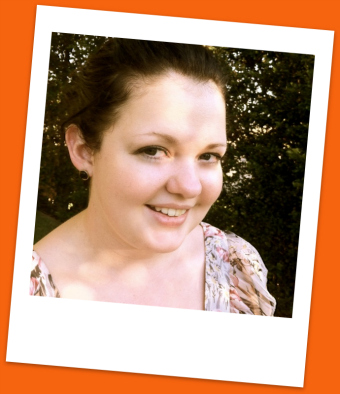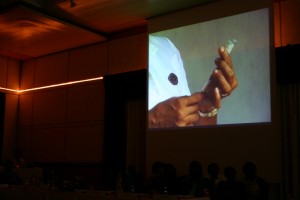CHOGM 2011: “Polio is a problem we can do something about”
October 31World leaders were in Perth on the west coast of Australia last week to take part in the biennial Commonwealth Heads of Government Meeting (CHOGM).
Amanda McClintock, 19, a Commonwealth Correspondent from Queensland, interviewed three leading figures from the NGO sector fighting to help eradicate polio from developing countries.
On Friday the 28th of October, seven bands, local and international, along with special guest speakers, joined together with the common goal of fighting the last 1% of polio across the world.
In the last few decades the number of polio cases across the world has dramatically shrunk to the point where only four countries have any polio cases at all. Three of these four countries are Commonwealth countries, making CHOGM the perfect background for The End of Polio Benefit Concert.
India, Pakistan, Nigeria and Afghanistan are still fighting to eradicate polio completely. India has only had 1 case of polio since January, a huge improvement on last year.
I sat down with The End of Polio’s campaign manager Michael Sheldrick, The Global Poverty Project’s CEO and co-founder Hugh Evans, Australian of the Year (2011) and chair of the Global Poverty Project board Simon McKeon and the World Health Organisation’s acting director of polio operations (monitoring and research) Chris Mahergave, each of whom gave me a better understanding of the disease, the campaign and the progress that has been made.
The biggest question on everybody’s lips is why polio? When there are so many other diseases out there and causes that you could campaign for, why polio?
Hugh: Polio is already 99% eradicated and we only need $3 billion dollars to end polio forever. We have a current funding deficit in the 2011/2012 budget of $535 million which is highly achievable between Commonwealth nations, so from a funding perspective the end of polio is highly achievable. [With] 1% to go we could actually do it. It demonstrates that things are possible, the funding is achievable and also because the economic saving associated with doing so is real and present.
Chris: I think it’s that to be involved in eradicating a disease is a really exciting thing, you know of all the diseases that exist in the world of course polio is not the most important of problems that the human race faces, but it is a problem we can do something about and we can do something about it to the point where we can stop it form ever paralysing anyone ever.
Michael: I guess for me I was born in 1988 which was the year that the World Health Assembly came together and really passed this resolution that we as a global community can make polio the second human disease to ever be eradicated and in my lifetime alone we have reduced the number of cases of polio by 99% and to me that is such a powerful good news story. It demonstrates what can be done when we put our minds to something. It shows an actual benefit of our aid dollars and most importantly it can reinvigorate and inspire other public health interventions around the world.
Simon: For so long, we have been so close and the problem is we actually run the risk of it becoming a pandemic in more than 4 countries. So firstly lets just finish off the job. Second thing is, it’s actually a very good, wise investment because the cost of trying to look after it for years and years and years is actually very high compared to just raising the capital cost of dealing with it now. The third reason and this is a bit harder to explain but in terms of all the aid and human development across the world, we are talking about helping 1.4 billion people and I think every now and then it’s right to have something actually accomplished.
 What is the goal of tonight’s concert? All of the heads of government are here in Perth for CHOGM, what are you hoping to see come out of tonight?
What is the goal of tonight’s concert? All of the heads of government are here in Perth for CHOGM, what are you hoping to see come out of tonight?
Simon: A concert like this gives young people an opportunity to say “yeah we get it” and they want to be a part of it and this is a concert which is announcing the end of polio, celebrating the fact that we are so close. Young people saying what can we do and older generations saying “it’s now your time and we are happy to give you responsibility for this”.
Michael: Obviously we’ve got CHOGM in Perth, we have 3 of the 4 endemic countries, we have key donor countries coming together and I think this marks the prime opportunity to reinvigorate political commitment to eradicating polio. I think it is a perfect opportunity to get financial commitments from our governments and so we are keen for the Australian government to take leadership and put this on the agenda and make a donation and we are very hopeful and very confident that a massive announcement is going to be made tomorrow morning. Hopefully this concert will show the public support of the issue that it is enough to get it on the agenda.
Chris: Yeah I think it is a reinvigoration of public commitment and its nice that it is starting in Australia because Australia for a decade or so now has not ben a real big player in polio eradication, it was a very significant country early on, so to have Australia reengaged and to help reengage other countries, communities and politicians it can make a very big difference believe you me.
What is the biggest impact that you have seen this campaign have on people across the world?
Hugh: The biggest impact is that for every signature on the website a child is being vaccinated thanks to Rotary International. We now have about 22,000 signatures so that is 22,000 children who have been vaccinated against polio and will never have to suffer the paralysing effects of the disease.
Chris: The most immediate one for me [is] the one I see with my eyes. When I first started working with polio I used to see paralysis all the time, polio cases were everywhere I looked and now it is getting harder and harder to find it and that is the most immediate impact for me is just having that disappear and to not see that disease anymore.
Michael: I guess a success story, if you take what is happening in India at the moment it has been nine months without a case of Polio. They have only had 1 case this year so we are well on track to making India polio free. If you can eradicate polio in India, you can eradicate it anywhere. It shows that the impossible is possible.
What advice would you have for young people who want to make a difference in their world on any issue that they are passionate about?
Simon: The young generation is an amazing generation. They have extraordinary leadership they are very well informed and they have technology that I could never have dreamt of when I was their age and I think it is just going to be a matter of going for it! I am saying to the younger generation just get on with it. Go! If you have something you are passionate about, go for it.
Hugh: Yeah I mean, be focussed. The challenges of ending extreme poverty are immense and they are complex issues but the way you have impact in this world I believe is to be focussed. Have a dream and choose what is achievable about that dream and focus to make it happen.
Since the concert, the Australian Government has pledged $50 million dollars and the issue of polio has been reinvigorated across the state, across the country and across the world.
…………………………………………………………………………………………………………………
About me:
“I am a working-class girl, full-time university student and mental health advocate from sunny south-east Queensland.
“Living in a small country town after growing up in the city only increased my passion for making a difference in my community and further afield, and for speaking up about the issues that matter most. Youth have a voice and it needs to be heard. Stand Up, Speak Up and Be Heard!”
…………………………………………………………………………………………………………………
Opinions expressed in this article are those of the author and do not necessarily represent the views of the Commonwealth Youth Programme. Articles are published in a spirit of dialogue, respect and understanding. If you disagree, why not submit a response?
To learn more about becoming a Commonwealth Correspondent please visit: http://www.yourcommonwealth.org/submit-articles/commonwealthcorrespondents/
…………………………………………………………………………………………………………………




